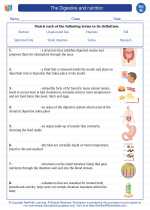Astronomy
Astronomy is the scientific study of celestial objects such as stars, planets, comets, and galaxies, as well as the phenomena that occur outside the Earth's atmosphere. It is a fascinating field that explores the universe and its origins, evolution, and eventual fate.
Key Concepts in Astronomy
- Universe: The entire cosmic space comprising of all matter, energy, and the physical laws and constants that govern them.
- Galaxies: Massive systems of stars, stellar remnants, interstellar gas, dust, and dark matter bound together by gravity.
- Stars: Luminous spheres of plasma held together by gravity, fusing hydrogen into helium in their cores and releasing energy in the process.
- Planets: Celestial bodies that orbit stars, are massive enough to be rounded by their own gravity, and have cleared their neighboring region of planetesimals.
- Comets: Small, icy bodies that orbit the Sun and release gas or dust, creating a visible atmosphere or tail as they approach the Sun.
- Phenomena: Events and occurrences in space such as supernovae, black holes, nebulae, and cosmic rays.
Branches of Astronomy
- Observational Astronomy: Involves using telescopes and other instruments to collect data about celestial objects and phenomena.
- Theoretical Astronomy: Involves developing and refining models and theories to explain the behavior and properties of celestial objects.
- Astrophysics: Focuses on the physical properties and behavior of celestial objects and phenomena.
- Cosmology: Explores the origin, evolution, and eventual fate of the universe as a whole.
Studying Astronomy
Studying astronomy involves a combination of theoretical understanding, observational skills, and computational analysis. Students interested in pursuing astronomy should develop a strong foundation in mathematics, physics, and computer science. Additionally, familiarity with telescopes, spectrographs, and other observational tools is beneficial.
Study Tips
- Practice problem-solving skills in physics and mathematics.
- Read astronomy textbooks and scientific papers to understand key concepts and current research.
- Visit planetariums and observatories to observe celestial objects firsthand.
- Engage in discussions and debates about the latest astronomical discoveries and theories.
- Utilize online resources and educational software to simulate astronomical phenomena and experiments.
By developing a strong foundation in the fundamentals of astronomy and staying abreast of current developments in the field, students can prepare themselves for a rewarding and intellectually stimulating career in astronomy.
.◂Science Worksheets and Study Guides Eighth Grade. The Digestive System & Nutrition

 Worksheet/Answer key
Worksheet/Answer key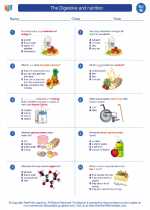
 Worksheet/Answer key
Worksheet/Answer key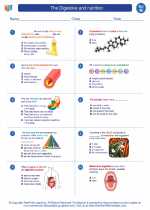
 Worksheet/Answer key
Worksheet/Answer key
 Vocabulary/Answer key
Vocabulary/Answer key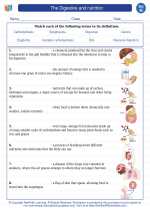
 Vocabulary/Answer key
Vocabulary/Answer key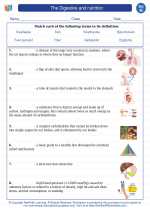
 Vocabulary/Answer key
Vocabulary/Answer key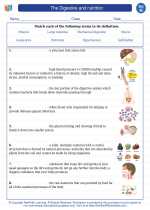
 Vocabulary/Answer key
Vocabulary/Answer key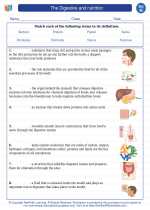
 Vocabulary/Answer key
Vocabulary/Answer key